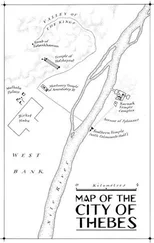Nick Drake - Nefertiti
Здесь есть возможность читать онлайн «Nick Drake - Nefertiti» весь текст электронной книги совершенно бесплатно (целиком полную версию без сокращений). В некоторых случаях можно слушать аудио, скачать через торрент в формате fb2 и присутствует краткое содержание. Жанр: Исторический детектив, на английском языке. Описание произведения, (предисловие) а так же отзывы посетителей доступны на портале библиотеки ЛибКат.
- Название:Nefertiti
- Автор:
- Жанр:
- Год:неизвестен
- ISBN:нет данных
- Рейтинг книги:5 / 5. Голосов: 1
-
Избранное:Добавить в избранное
- Отзывы:
-
Ваша оценка:
- 100
- 1
- 2
- 3
- 4
- 5
Nefertiti: краткое содержание, описание и аннотация
Предлагаем к чтению аннотацию, описание, краткое содержание или предисловие (зависит от того, что написал сам автор книги «Nefertiti»). Если вы не нашли необходимую информацию о книге — напишите в комментариях, мы постараемся отыскать её.
Nefertiti — читать онлайн бесплатно полную книгу (весь текст) целиком
Ниже представлен текст книги, разбитый по страницам. Система сохранения места последней прочитанной страницы, позволяет с удобством читать онлайн бесплатно книгу «Nefertiti», без необходимости каждый раз заново искать на чём Вы остановились. Поставьте закладку, и сможете в любой момент перейти на страницу, на которой закончили чтение.
Интервал:
Закладка:
Along the Royal Road, small crowds began to accumulate. People stopped what they were doing-sweeping up debris, or tending improvised little fires around which they had gathered against the terror and darkness of the night hours-to stare blankly at the sight of the Queen in her chariot. As she passed, some rose and made profound gestures of respect and worship; others cried out in desperation, their hands clenched in supplication. She acknowledged them.
As we approached the temples of the central city we saw Horemheb’s troops in their uniforms standing guard on all corners, while others herded straggling groups of people-the uncertain remains of visiting parties from all over the Empire-from one place to another. Improvised encampments had grown up literally overnight. A well had been cleared, and long lines of people holding jugs and jars waited to receive fresh supplies. Some bread stalls were selling, no doubt at inflated prices, to orderly queues of people. Everywhere, people looked shocked and terrified, unsure about what was happening to their world, amazed and daunted by the swift changes of fortune. They stumbled about, or suddenly stopped walking, as if they had forgotten where they were going, and why.
But when they saw Nefertiti passing on her chariot, everyone’s faces lightened, as if here at last was something they could believe in; something they had lost and now found again. She slowed her chariot and acknowledged the cries and calls of support and approval as they grew. The people, forgetting their fear of the soldiers, now pushed and surged to line the sides of the Royal Road. Theirs was not the well-orchestrated and insincere enthusiasm that had greeted Akhenaten in worship; their cheers were cries from the heart. Something in the Queen’s spirit rose to meet their call. I too believed, at that moment, that she could, after all, save something from this. My spirits lightened a little. What surely lay ahead suddenly seemed less intractable.
To the overwhelming accompaniment of roars and prayers of support in a chaos of languages, and a fanfare of trumpets from the assembled troops, we turned through the gate and into the vast courtyard of the Great Palace. It had been swept and restored to order. The great stone statues of Nefertiti and Akhenaten lined the huge open space, which was now packed to the walls with waiting dignitaries, ambassadors and leaders, their scribes and attendants, servants and fan holders and parasol holders, all of whom turned to observe the Queen’s arrival. It seemed they had been waiting for some time. Everything suddenly went very quiet. All I could hear was the rustle of several thousand of the finest linens in the world as the gathering rose to its feet, waiting to witness the next move in the game of power. There was no sign of Horemheb or Ay.
Nefertiti came to a halt and, still holding the reins of her team of horses and looking magnificent in the double crown, addressed the people from her gold chariot.
‘This night has been long and dark,’ she said. ‘But now a new sun has risen upon a new day. We are gathered together in witness and in celebration. The shade of our Great Palace offers protection, and comfort, and security, to all of you. We return to it. We invite you to join us.’
She was acknowledging, without saying so explicitly, that the cult of the Aten was finished; that Akhenaten was absent but that she was present and there had been a shift in power. She was the embodiment of this political change. She was the new sun. She was the new day.
There was silence for a long moment. Then, gradually, a slow murmur of approval and appreciation began to spread through the crowd. Men nodded, and turned to each other in agreement. This was what they had wanted and needed to hear. Applause and calls of praise began to ring out, growing from tentative beginnings into a long, loud, strong affirmation. So far so good.
Nefertiti descended from the chariot, gathered the princesses around her, and strode into the main building as if to say: we are a dynasty of strong women; we are in charge. The crowd of men followed her inside. I tried to keep up with her as we all struggled along the palace’s overwhelmed corridors. Despite the clamour and activity, the petitions and prayers and calls for her attention, she was still able to make discreet acknowledgements of the respects paid by the waiting scribes, administrators, palace officials and overseers-fathers and sons standing together to witness her return-as she passed down the corridors.
Finally we entered a great hall, near the water’s edge. I had never seen a chamber with so many graceful columns, hundreds of them, surmounted by red, blue and white chevrons, holding up a ceiling of heavenly stars. It seemed ironic to me now that the dirty business of power and politics required such beautiful chambers.
The hall was soon overflowing with dignitaries, and there were many more people crowding into the side passages and antechambers. Nefertiti, accompanied by her daughters, entered the Window of Appearances, turned, and looked out over the gathering.
‘I am returned,’ she said. ‘I stand before you now not as a god but as a woman. I am heart, and spirit, and truth. Listen to what I say, and speak of it to your people. I come to restore truth. Let all know this: truth shall prevail. Any man who challenges or dishonours our peace with war or corruption or lies is guilty of a crime against truth and against the Two Lands. This is the Truth of the Gods, the Truth of maat , and the Truth of my House.’
The chamber was utterly silent. Everyone was attending to every nuance and each unspoken implication of her words.
‘And now we shall reward, in the sight and witness of the whole world, those who we love and who have tendered us their love.’
Through the columns and the crowded heads of the world’s men of power, I saw Horemheb approach the Window. He ascended the platform before her, bowed his arrogant head, and received a gold collar, which Nefertiti placed around his neck. He stood back, bowed, kneeled, and stepped down. He did all of this with an exact grace, but it carried with it no sense whatsoever of real commitment. Next came Ramose. He, too, received a collar, but his reaction was one of pride. He looked moved and relieved. Others followed as the herald called out their names, leading figures in the hierarchy whose loyalty she needed to ensure in public before she could move forward to the harder negotiations. She was bringing together the elements that had threatened to tear the land apart, making them acknowledge her authority and obey her rule.
Then I heard my name called. The room went silent. Surely it was a mistake. I heard it again: ‘Rahotep, Seeker of Mysteries’. I was startled. My breath suddenly sounded loud in my ears, and my heart raced. As in a dream, I saw a pathway open up for me in the crowd, and I passed through it, past the rows of curious, shadowy faces, towards the Window. I stepped up onto the platform and looked up at her face, framed by the icons of her power. Everything seemed charged with detail: the clear light in her glittering eyes; the colours, red, gold, blue, in the Window; the red ribbons that hung below the frieze of fierce, protecting cobra-heads above us; even the expectant hush in the room.
I knew that I had found her, and I understood that I had lost her. I had always known it would be so. This was the end. Is it foolish to say I felt something like snow falling about me, as if these last moments with her had slowed and changed into the intangible, delicate and fast-disappearing flakes? There was a look of lightness on her face. She possessed her power once more. I felt a sadness welling in my heart. It was not a good sadness, clear as sweet water; it was darker and stranger, like some beautifully bitter, rich, blood-red wine. I thought of her then as that box of snow. My treasure. I would carry her memory with me, and I would never open it.
Читать дальшеИнтервал:
Закладка:
Похожие книги на «Nefertiti»
Представляем Вашему вниманию похожие книги на «Nefertiti» списком для выбора. Мы отобрали схожую по названию и смыслу литературу в надежде предоставить читателям больше вариантов отыскать новые, интересные, ещё непрочитанные произведения.
Обсуждение, отзывы о книге «Nefertiti» и просто собственные мнения читателей. Оставьте ваши комментарии, напишите, что Вы думаете о произведении, его смысле или главных героях. Укажите что конкретно понравилось, а что нет, и почему Вы так считаете.










